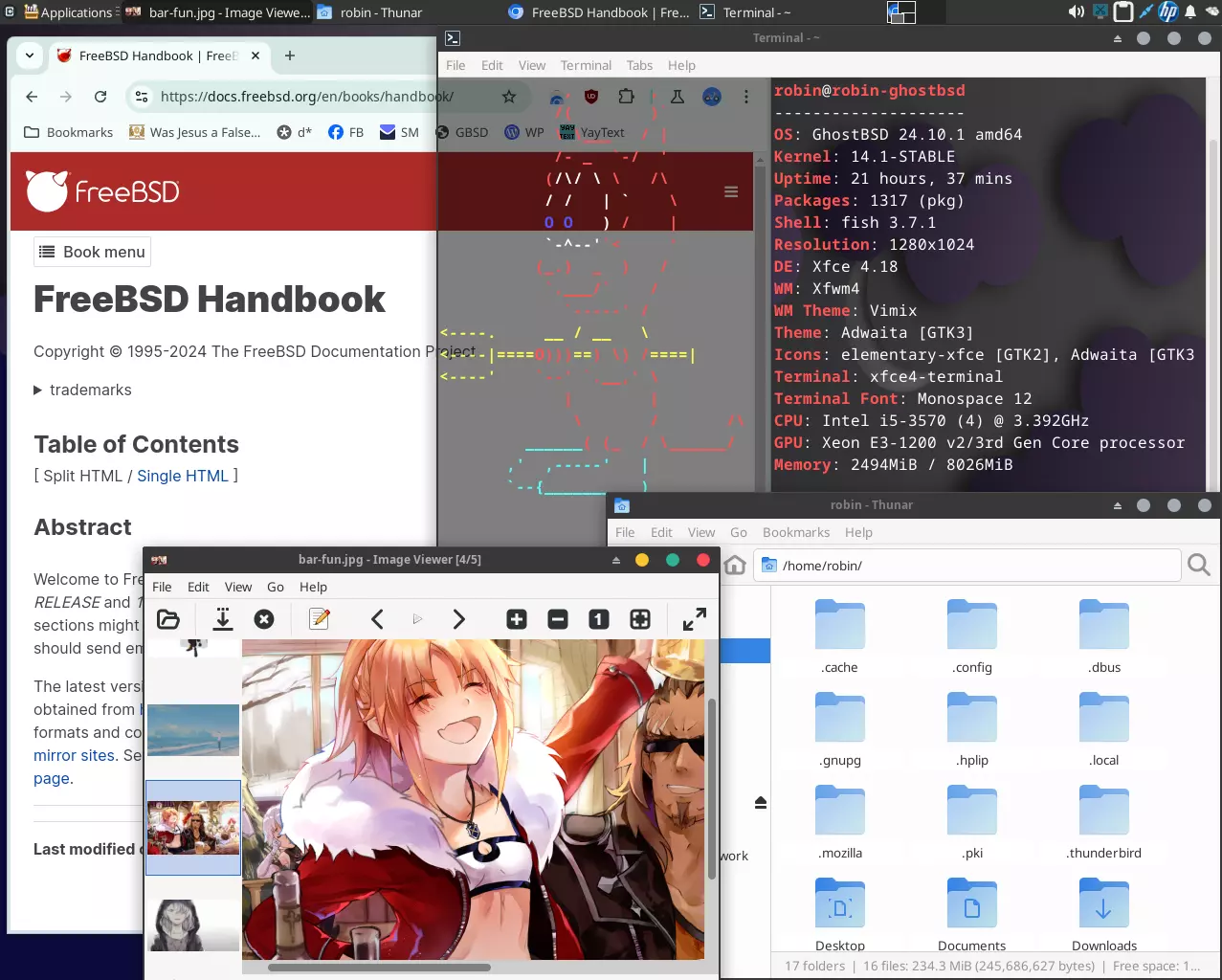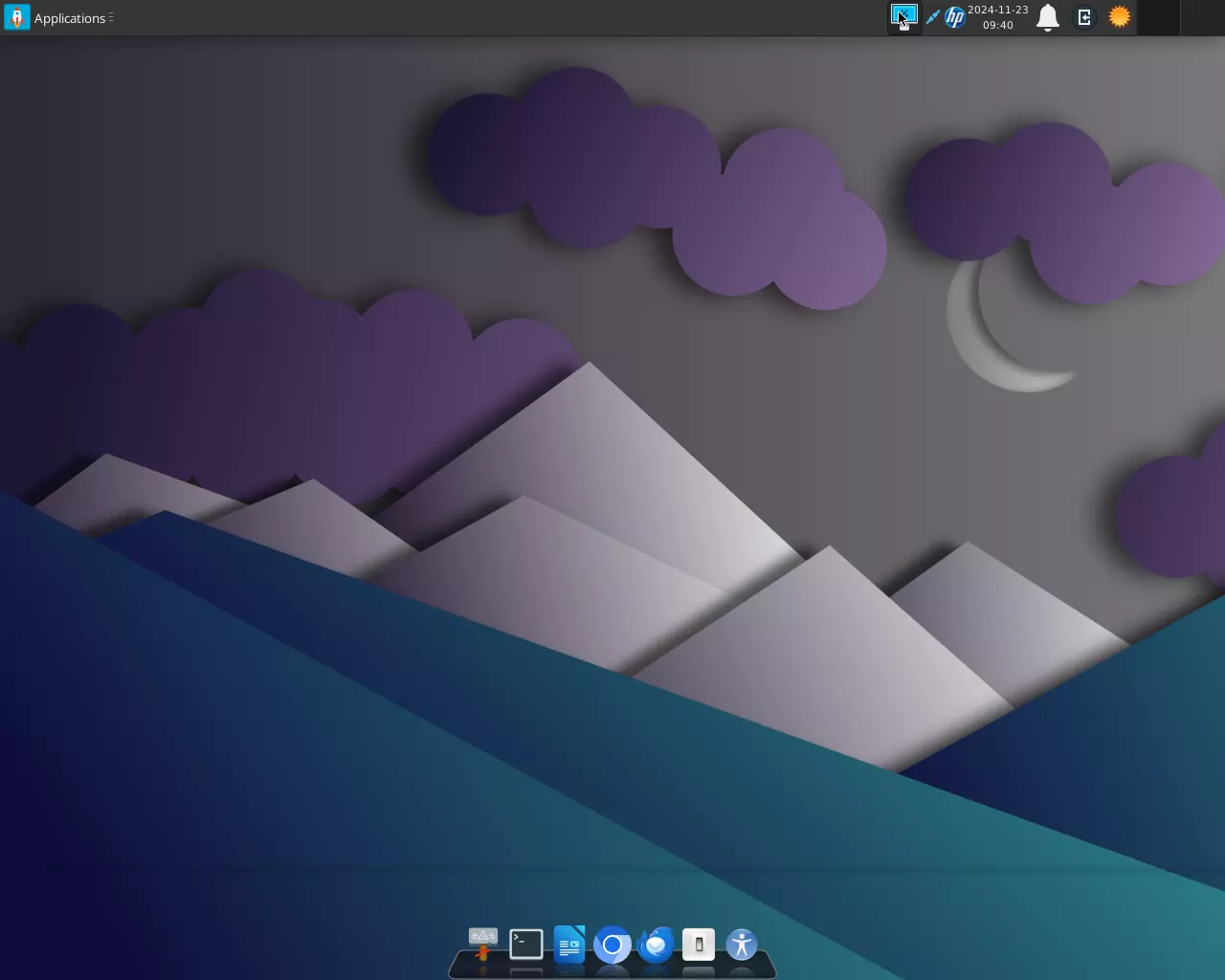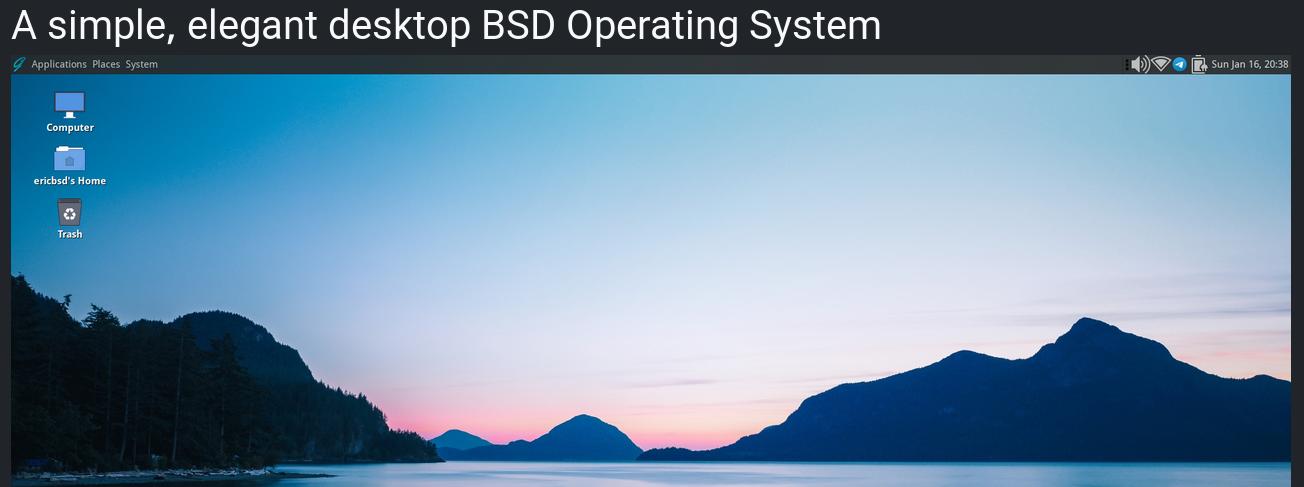3 Likes
3 Comments
Well. I just sternly rebuked in the #MX-Linux forums for "banned content." All I did was try simply to explain why I was motivated to try GhostBSD (the explulsion of Russian maintainers, the weaponization of the Contributor's Code of Conduct). Thread locked, warning issued to include a threat of "further action" if I didn't edit the post.
Okay. Good to know.
I haven't even booted into MX-Linux since I installed #GhostBSD two weeks ago. Now I guess I'm done with the forums as well as the OS.

I'd rather not use #brave-browser on my #GhostBSD installation, since I have to resort to using all kindsa Linux-compatibility stuff I don't want, so I have #ungoogled-chromium from the repositories. It's excellent! I even managed to get #uBlock-Origin to work on it in some roundabout way I found on #github.
The only issue is that I can't watch #youtube on it, since #Google has gone to war against all adblocking and everyone who doesn't accept Google as their Lord and Master.
I can watch youtube videos that are embedded in posts to diaspora, weblogs, and other sites, just not on Google's youtube site.
But y'know what? Screw Google and Youtube! I can watch youtube on brave, but why? People who make #BSD and #Linux videos need to use Rumble or Odessy or any other site to post their videos on. Google wants a war? I say we give them one.
Still on #GhostBSD and enjoying it! But as a #Linux guy until only last week, I've got a lot to learn. One thing I totally don't understand is #BSD's "snapshot" system. I was hoping to be able to write a snapshot to a bootable USB stick (as an ISO file) now that I've pretty much got all the little bugaboos taken care of and am left with an awesome desktop BSD OS.


A friend asked me to post a screenshot or two as I'm fiddling and experimenting with #GhostBSD. In my opinion, an experienced Linux user would have a pretty easy time with this OS. Not so much for me, being a GUI boy who is frankly scared of the dreaded terminal. But the terminal is a secret weapon that offers ultimate control, and I'm finding that it's often simpler to use than the GUI stuff! Surprise!
After all the discussions here in the Fediverse about what's happening to #Linux these days, I thought I'd look again at "desktop BSD." I'm very glad I did! At the rate I'm learning and because of what I'm learning, this has already become my "daily driver," replacing #MX-Linux, which is still available to me iof I need to fall back on it, as a portable USB-stick OS.
Little “nickel-and-dime” issues have given me pause about making #GhostBSD my daily driver, but 3 out of 4 of them were resolved after a bit of searching and applying things. I even managed to get ungoogled-chromium to accept uBlock-Origin with one complicated workaround. I would have been better off to just install Brave using a linux-compatibility layer from the #FreeBSD repo. I probably still will do that, since YouTube has decided to block ungoogled-chromium.
Cairo-dock locked up and froze everything up once, and once was enough. I replaced it with Plank just because I wanted a dock rather than just another Xfce panel for nothing but launchers. Just enough eye candy to make the difference I like. I had to turn off "shadows" in Xfce's window manager tweaks to erase a stupid horizontal line that appeared above the dock (which it also did with Cairo-dock), no big deal.
Settings don’t stick after a reboot, though, and I have to use Pulseaudio mixer to restore my USB headset to usefulness every time I log out and back in. There must be some way to make my settings “stick” between sessions!
Other than those little minor annoyances, I think this could become my daily driver. It would ease my concerns about:
GhostBSD lacks some of the wicked-cool GUI stuff that spoiled me in Linux distros, like “minstick” and Systemback (later “Timeshift”), but those tasks are actually easily handled from the command line. There’s even some GUI stuff for keeping bootable snapshots of the existingOS (with /home, /etc, and other stuff backed up separately). This is an almost-ready-for-prime-time OS for BSD beginners with a little bit of Linux experience.
Pow, zoom, zip! Snappy, nimble, and quick! No #systemd pollution and monitoring of every little process. 30,000+ software titles available including most all my favorites (except BSD thinks that Seamonkey is "abandonware").
Everything works. Including wifi. It's not very much different from running Slackware-based #SalixOS, and it has lots of nice GUI tools for users like me who are scared of pushing the wrong button and accidentally igniting the Earth's atmosphere and destroying all life on the planet or something.
Got a sweet Xfce desktop on at the moment, but I think I'll try Openbox + Plank and a few little bits of eye candy here and there. Lots of room to play.
Rolling-release, too! No having to re-install and reconfigure every so often, or trying to preserve /home and finding that configuration files won't work after an update. All that trouble goes away as well.
If you're a GUI boy like me, and want to explore a UNIX-like system that hasn't been bought, gone woke, or been politicized down to the very kernel itself, I heartily recommend #GhostBSD as an introduction to the still-unsullied FOSS world of #FreeBSD!

GhostBSD is a simple, elegant, and friendly #BSD operating system for desktops and laptops based on #FreeBSD. #GhostBSD is a slow-rolling release, while some GNU/Linux distros are on the bleeding edge side; we tried to offer a stable update and release cycle. The official desktop environment is #MATE. The system comes with a graphical application to install software and update your system. Most codecs to play multimedia files are pre-installed. The installer leverages #OpenZFS, makes it easy to install GhostBSD on ZFS with other OS on the same drive, and is suitable for newcomers to FreeBSD. With modest hardware requirements, GhostBSD is ideal for modern workstations and 64-bit single-board computer hardware.
"In this video, I am going to show how to install #GhostBSD 22.01.12." https://yewtu.be/watch?v=_2Ho-oaVfQQ #bsd #unix
Videos/Shows: #GhostBSD 22.01.12, Flatpak, Coder Radio, and Full Circle Weekly News • Tux Machines ⇨ http://www.tuxmachines.org/node/160481 #GNU #Linux #TuxMachines
"In this video, I am going to show an overview of #GhostBSD 22.01.12 and some of the applications pre-installed." https://yewtu.be/watch?v=OD5zOxDcItU #bsd #unix
#GhostBSD 22.01.12 Released With Automatic Detection For Old AMD GPUs http://www.tuxmachines.org/node/160362#comment-32528
#GhostBSD 22.01.12 ISO is now available • Tux Machines ⇨ http://www.tuxmachines.org/node/160362 #UNIX #BSD #TuxMachines
#GhostBSD 21.11.24 ISO is now available • Tux Machines ⇨ http://www.tuxmachines.org/node/158430 ##BSD #UNIX#TuxMachines
Links 17/10/2021: #GhostBSD 21.10.16 and Mattermost 6.0 • 𝕋𝕖𝕔𝕙𝕣𝕚𝕘𝕙𝕥𝕤 ⚓ http://techrights.org/2021/10/17/mattermost-6-0/ ䷉ #Techrights #GNU #Linux #FreeSW | ♾ Gemini address: gemini://gemini.techrights.org/2021/10/17/mattermost-6-0/